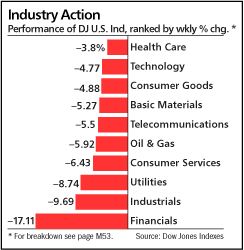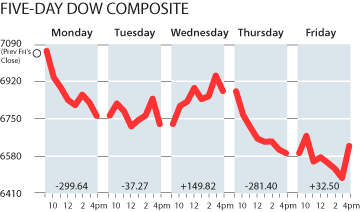From Mike Goodsen
On February 27th of this year, Goldman Sachs downgraded its rating on Costco (COST) to "neutral" from "buy." Whenever I see downgrades like this based on concerns of valuation (and if the stock isn't hitting new 52-lows -- something that too often accompanies sell-side downgrades), my contrarian spidey sense begins to tingle. When I see that most analysts rate the shares hold and only a few brave souls continue to recommend this stock, I want to know more. (Aside -- in my experience valuation alone is rarely a reason for a stock to go up or down. High expectation stocks which carry a premium valuation may be vulnerable to negative surprises, but absent a "problem," premiums can persist for a long time. Ditto for some cheap stocks and their low valuations.) It seems that COST is a stock everyone would love to love but the perceived high P/E is keeping analysts on the sidelines. Yet the lowest target price I could find was $60 -- right about where the stock is now.
The shares are now trading at 20.4x the '08 EPS consensus estimate of $2.98 and 17.7x the '09 EPS estimate. Most agree that the stock's recent P/E range is around 20-23x. According to my calculations, the stock has reached as high as 25x on in the recent past. Given this history, one could argue that the shares are "cheap" at $60. One could infer price targets of $68.54 (23x '08) and $78.89 (23x '09) simply using historical average P/Es. Interestingly, the sell-side consensus target price is the just below the mid-point of these numbers = $71. Although the consensus recommendation is "hold," the consensus target price implies upside of 17% from the current level. Not bad for a stock few seem to like. Yes, but what about the recession? Costco is a retailer after all and in a recession all retailers suffer, right? Well, looking back at the last recession (2000-2001), the shares traded as low as 18.9x (around $28) in 2002. Hmm, doesn't sound like disaster does it? What about the earnings expectations? Yes, there could be some slippage here, but why would all the analysts who rate the shares "hold" have unreasonably high EPS estimates? It seems to me that the shares could already be near a bottom even if a recession is around the corner.
Operationally, the company seems to march along with little regard to the economy. The company currently operates 529 stores, having opened up about 30 new stores in 2007. In 2008, it plans to open about 30 new stores again. I suspect management reads the newspaper and is aware of what's going on in economy, but unlike many investors, the folks who run COST are not becoming more defensive just because the economic outlook is weakening. Some suggest that Costco's average shopper is more affluent than the average consumer and is likely to be less affected by the recession, if and when it comes. If this is true, it might be another positive to the story.
The historical 5-yr EPS CAGR (compound annual growth rate) is around 12% and the consensus future EPS expected growth is 13.6%. Why would anyone pay 20x for a stock growing earnings at 13-14%? I can see two reasons: 1) earnings consistency and 2) higher earnings potential. If one looks back at the last 12 quarters, the company has not logged a negative earnings surprise. To me, this suggests the company has a very tight handle on its costs and revenues. The fact that management opens up the same amount of stores each year suggests they know where the new demand will be and are placing stores accordingly.
Some analysts suggest that the company could earn much more than they do, if they chose to do so. COST's gross margin is only 12.4% vs. Wal-Mart's 23.5% and Target's 32.6%. Operating margins for the three firms are 2.6%, 5.8% and 7.3%, respectively. Granted, the store business models are not exactly the same, but it seems to me that COST could see some meaningful margin expansion if it wanted. It appears that the company is happy to "give away" some of its margin to employees and customers -- not really a bad strategy in my view.
These factors may account for the higher-than-expected multiple. After looking at the stock , I ended up buying the shares on February 27, the day of the Goldman Sachs downgrade and sold the April $62.50 calls against my position, netting me a cost of $60.21. I can see the stock easily reaching the consensus target of $71 over the next 12 months or so and would not be surprised to see the shares in the $75-79 sometime next year. Although COST may not look like a typical "value" stock here, I perceive great value for the patient long-term investor.
Subscribe to:
Post Comments (Atom)



No comments:
Post a Comment